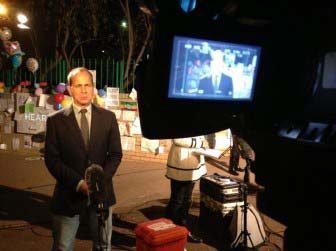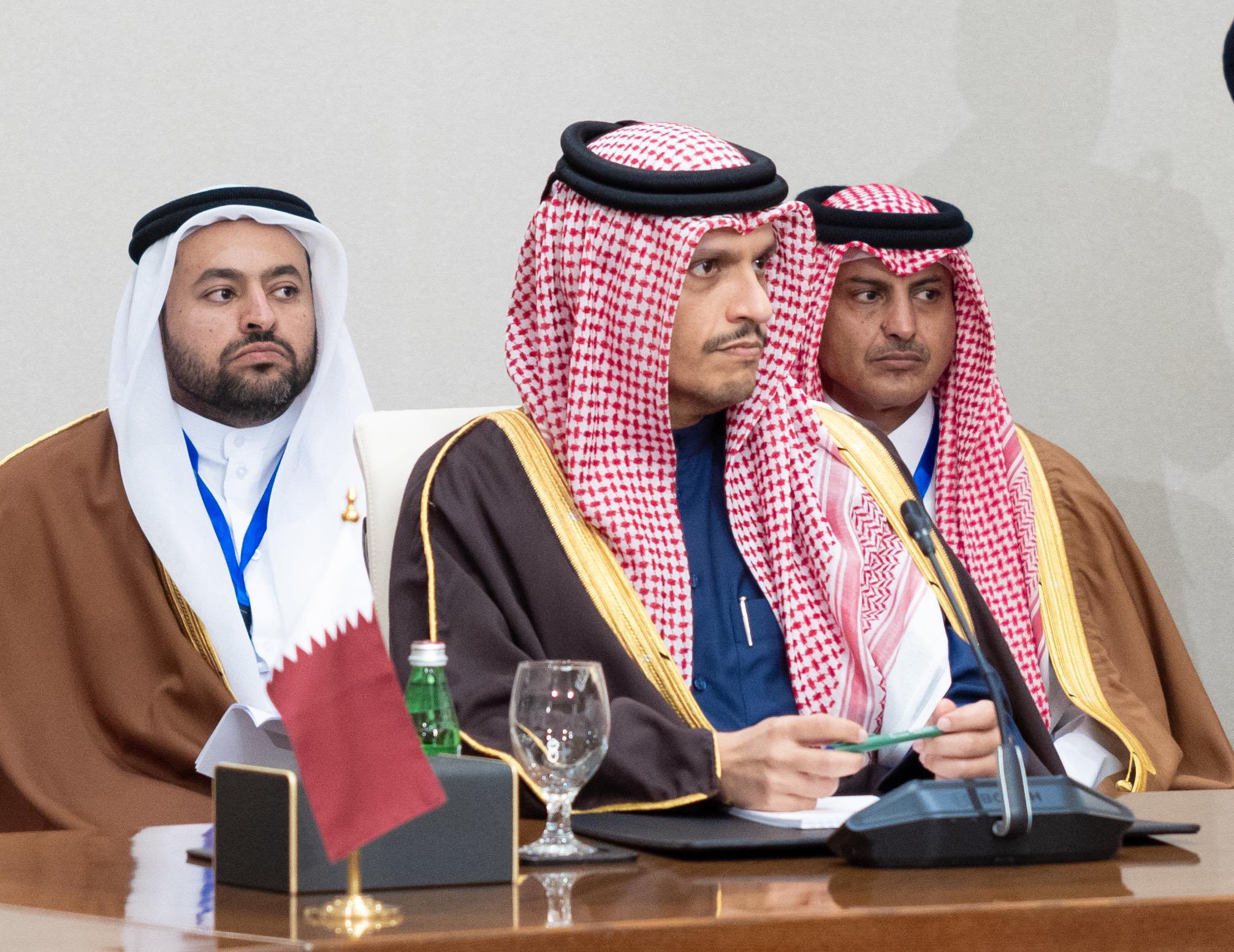
Journalists and human rights activists around the world are renewing calls for the release of three Al Jazeera staff as today marks the one-year anniversary of their arrest and imprisonment in Egypt.
Baher Mohamed, Mohamed Fahmy and Peter Greste were arrested in their Cairo hotel room on Dec. 29, 2013 and charged with spreading false news and assisting the outlawed Muslim Brotherhood.
In June this year, an Egyptian court found the trio guilty of the charges and handed down harsh sentences. Egyptian national Mohamed was jailed for 10 years, while Australian Greste and Canadian-Egyptian Fahmy each received prison terms of seven years.

The verdict met with widespread international condemnation and was seen as an attack on media freedom.
The journalists have appealed and a hearing is set to take place in the Court of Cassation in Cairo on New Year’s Day.
The appeals hearing will examine the process behind the original trial, which has been heavily criticized by Al Jazeera and other organizations. That court could possibly dismiss the case outright, order a retrial or uphold the original verdicts.
Support
For the last year, supporters of the journalists have repeatedly taken to social media to demand their release, using the hashtag #FreeAJStaff. These calls have intensified again today on the anniversary, with their family members also joining in:
A number of vigils are planned to take place today to mark the anniversary, including a demonstration outside the Egyptian Embassy in Central London at 12 midday UK time (3pm Qatar time).
Meanwhile, international human rights organizations have again appealed for the release of the men.
In a statement, Amnesty International Australia Campaigns Manager Hannah Harborow said:
“These three journalists have committed no crime. They have been wrongfully imprisoned for 365 dyas for simply doing their job. They were convicted in a trial that was widely condemned as farcical all because their reporting was seen by authorities to challenge the political narrative.
All three are prisoners of conscience and should be immediately and unconditionally released.”
According to their supporters, Greste, Mohamed and Fahmy are only allowed to send one prison-approved letter each month.
Letter from Greste

Just before Christmas, Greste sent his latest letter from Mazraa prison, where he and the others are currently being held.
In the message, Greste acknowledged the temptation to be “morose” after a year in jail, but also spoke of how family, friends and supporters have created “a huge global awareness” of the importance of media freedom in the world.
“We have reignited public discussion and awareness of the vital role that unfettered journalism plays in any healthy, functioning democracy,” he said, continuing:
“That is why our cause, as opposed to simply our case, is so important, and not just for Egypt. The noise you all have been making sends a clear and unequivocal message to politicians around the world: a free press is an indivisible part of a free society.
As we approach the end of our first year in prison, I cannot help but feel proud and strengthened by all that has been achieved so far. We haven’t won this fight yet – we are still behind bars after all – but we have made our cause abundantly and unequivocally clear.”
While Egyptian President Abdel Fattah el-Sisi has the power to issue a pardon to the men, he has previously said that he would not interfere with the judicial system.

However, new recent concessions made by Qatar, include the shuttering of Egypt-focused news channel Al Jazeera Mubasher Misr, may cause him to change his mind.
For its part, the Egyptian government has maintained that the arrest of the journalists was not a political decision and so must go through the appeals process.
But this is not a view shared by everyone. Doha-based Al Jazeera’s acting director general Mostefa Souag has repeatedly said that the arrests were politically motivated and he has criticized the lack of evidence presented in their trial.
In a past interview with Doha News, he said:
“There was not a shred of evidence showing these people are guilty of these accusations … There was nothing really to show or even indicate the possibility of any violations.”
Thoughts?







